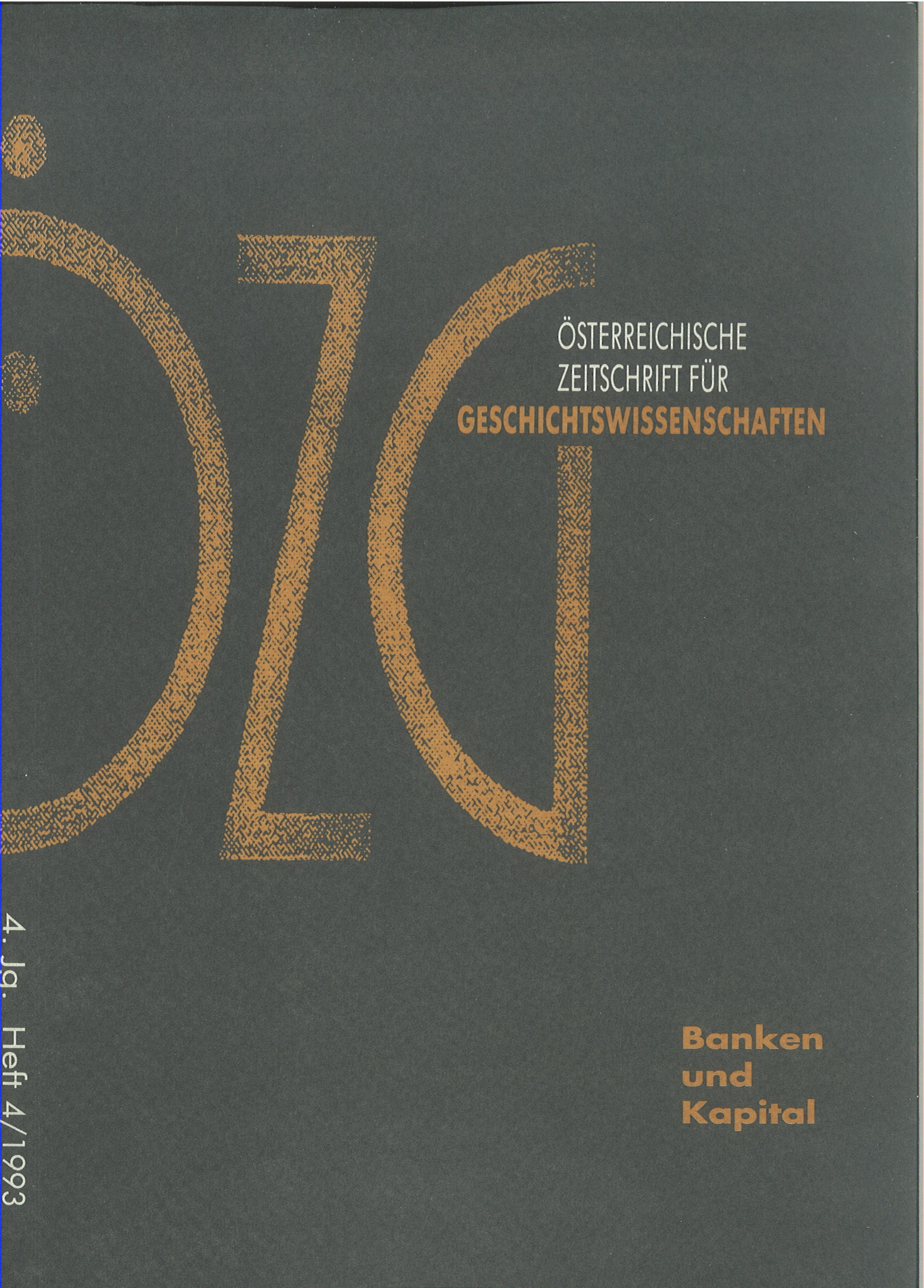Die zweite Blütezeit
Die Pester Privatbankiers und die Industriefinanzierung vor und nach dem Ersten Weltkrieg
DOI:
https://doi.org/10.25365/oezg-1993-4-4-5Abstract
The decisive role played by merchant banking in the financing of the economy, particularly in the first stage of the development of the banking system up to 1873, is well-known. Yet the revival of the banks' importance at the beginning of this century has been neglected by economic historians in their attempt to explain the diffusion of ,finance capital' into the industrial section via the acquisition of business enterprises. In Hungary, the conversion of merchant houses into banks took place for purposes of managing family wealth and financing as well as controlling industrial interests. The industrial sector in which the banks most concentrated their activities was the food production industry, to which large agricultural estates were usually attached. Depending on the economic climate these enterprises might also branch out into other banking activities such as discounting bills and foreign exchange transactions. This essay reconstructs the functions of these institutions via the so-called credit-information cards which are preserved in the archives of the central bank.


